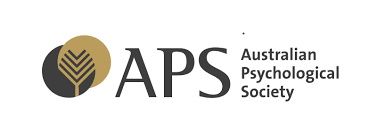


Marie Bloomfield
Clinical Psychologist
Senior Certified MSC Teacher

Marianna Lolas
Clinical Psychologist
MSC teacher
Mindfulness and Self-Compassion
for Professionals (2-day-14 hours)
"Compassion is the heart of emotional healing".
Mindfulness and Self-Compassion for Professionals is an outstanding didactic and experiential workshop presenting powerful practices from the empirically validated Mindful Self-Compassion program (designed by Kristin Neff and Chris Germer) that you can use in your own life and also teach your clients.
An ever-growing body of research is showing that mindfulness and self-compassion benefit mental and physical health by reducing depression, anxiety, trauma and burnout while promoting wellbeing, resilience and better relationships.
Mindfulness + Self-Compassion
Mindfulness and self-compassion are about being present with connection and warmth during times of pain and struggle. Mindfulness increases our ability to deal with the inevitable stresses and struggles with more calm. When we add Self-Compassion, we greatly increase our capacity for equanimity and happiness. Mindfulness is the ability to be aware of the present moment, to step out of thoughts, to opt out of automatic ways of reacting, to gain more perspectives, for better self-care and wisdom. In the moment, when difficult emotions are met with compassion rather than fear, anger or shame, there is a change in body chemistry which can lead to profound transformation.
The Physiology of Mindfulness and Self-Compassion
Compassion, including self-compassion, activates the emotions of bonding and safety in our mammalian-care system to allow access to our more evolved human capacities of perspective-taking and problem-solving. When difficult moments are met with mindfulness and self-compassion, the stress response is reduced, and the automatic fight/flight/freeze response (sympathetic nervous system) is eased. This helps to restore a sense of safety, to restore calm and the rest-digest or tend-befriend response (parasympathetic nervous system), to allow access to higher brain functions, and to enable to deal with challenges more effectively.
The Yin and the Yang of Self-Compassion
Often, to restore calm we think of compassion as passive or yin, which is comforting, nurturing and soothing but, self-compassion can also be very active or yang, which is motivating, empowering, and giving the courage to act, assert, protect, to defend as required.
Research findings over the last 30 years support the benefits of the practice of mindfulness, meditation and self-compassion by promoting better mental and physical health, and positive relationships while preventing burnout and caregiver fatigue.
Mindfulness and Self-Compassion have been found to:
- Increases resilience to stress, fostering emotional strengths and flexibility
- Promotes emotional regulation, relaxation and calm
- Prevent burnout, vicarious trauma and caregiver fatigue
- Activates brain circuits to promote well-being, confidence, problem-solving and flexibility
- Reduces risk of illness by boosting the positive effects of the parasympathetic/vagus nerve and strengthening the immune system
- Promotes healthy lifestyle habits such as diet/exercise, to assist in maintaining a healthy weight
- Increases happiness, curiosity, enthusiasm, commitment and satisfaction, while decreasing negative emotions
- Promotes better communication, social intelligence and stronger relationships
- Increases ability to focus, to concentrate, to be open to new ways, to innovate
- Promotes leadership skills
- Increases life satisfaction, social connectedness, vitality, optimism and joy of living
What is Self-Compassion?
Mindful Self-Compassion is the practice of mindfulness with self-kindness associated with the notion of common humanity. The motivation is to soothe and calm in times of stress to increase the ability to resolve challenges and enjoy life. We can learn those skills for ourselves, so we can teach them effectively to others. Everyone will benefit!
Training objectives
After participating in this training workshop, you’ll be more able to:
- Practice mindfulness and self-compassion in daily life
- Cultivate feelings of goodwill, kindness and warmth towards self and others
- Motivate yourself and others with encouragement rather than harsh self-criticism
- Deal with struggles with courage, acceptance and resilience
- Regulate difficult emotions with more ease
- Become aware and able to attend skilfully to your needs and the needs of others
- Teach simple mindfulness and self-compassion practices to patients, clients, students and children
The Mindfulness and Self-Compassion training workshop consists of:
- Guided meditations, visualizations, talks, experiential exercises, self-reflective writing, group discussions, strategies, tools and suggested home practices.
- Meditations and informal practices with mp3downloads
- You will be given the option to purchase the Mindful Self-Compassion Workbook written by Kristin Neff and Chris Germer ($40.00)
Day 1:
Session 1: Self-Compassion in daily life
Session 2: Mindfulness in daily life
Day 2:
Session 3: Benefits and applications of Loving-Kindness
Session 4: Making peace with the Inner Critic and positively motivating ourselves
What to Expect
The short course presents simple and quick tools to increase the ability to attend to the self, compassionately, whenever there is struggle or pain, to ease stress, to gain balance and resilience. The workshop consists of topics and practices, meditations from Mindful Self-Compassion to soothe, to calm as well as strategies to promote emotional strength, flexibility and positive motivation that you can practice in daily life and teach your clients, patients or students. The workshop consists of short talks, meditation, visualisation, experiential exercises, self-reflection writing and group discussions.
Note: This two-day workshop is an introduction to Mindful Self-Compassion (MSC- designed by Kristin Neff and Chris Germer) an empirically-supported program since 2013. The content of the program consists of the first two days or initial 4 sessions of the complete Mindful Self-Compassion program often presented over 5 days or 8 weeks.
Who is it for
This workshop is for professionals who value and wish to integrate mindfulness and self-compassion into their life and work to enhance their clinical skills while preventing burnout.
Beginners are welcome as well as others who may have a more regular practice in mindfulness or meditation. If you have attended other mindfulness-based programs such as MBSR or MBCT this course will help you to extend and deepen your practice in self-compassion.
Participant Guidelines
The Mindfulness and Self-Compassion training workshop is an adventure in self-discovery and personal growth. During the program, we can open up to our struggles in a way that is soothing and comforting to uncover our inner strengths. The group comes together to provide a safe, supportive, confidential environment to develop compassion for ourselves and others.
Difficult emotions may arise as we give ourselves the kindness that we need. Participants are asked to attend to their safety and wellbeing. We will support participants as we proceed together through the course. We are committed to making the journey safe, interesting and enjoyable for everyone.
What Mindfulness and Self-Compassion for Professionals are not:
This program is not group therapy and does not replace individual psychotherapy. Mindfulness and Self-Compassion is an educational group program to build emotional resources and is not a substitute for individual medical or psychological treatments.
Continued Professional Development-CPD
A Certificate of attendance of 14 hours will be given to professionals requiring evidence of professional development training such as psychologists, social workers, teachers, doctors, nurses, occupational therapists, physiotherapists, etc.
Reading (optional)
It is recommended, but not required, that participants read one of the following books before the training program:
• Self-Compassion: Stop Beating Yourself Up and Leave Insecurity Behind by Kristin Neff
• The Mindful Path to Self-Compassion by Christopher Germer
• Mindful Self-Compassion Workbook by Kristin Neff and Christopher Germer
Mindfulness and Self-Compassion for Professionals (2 days) -
TBA
